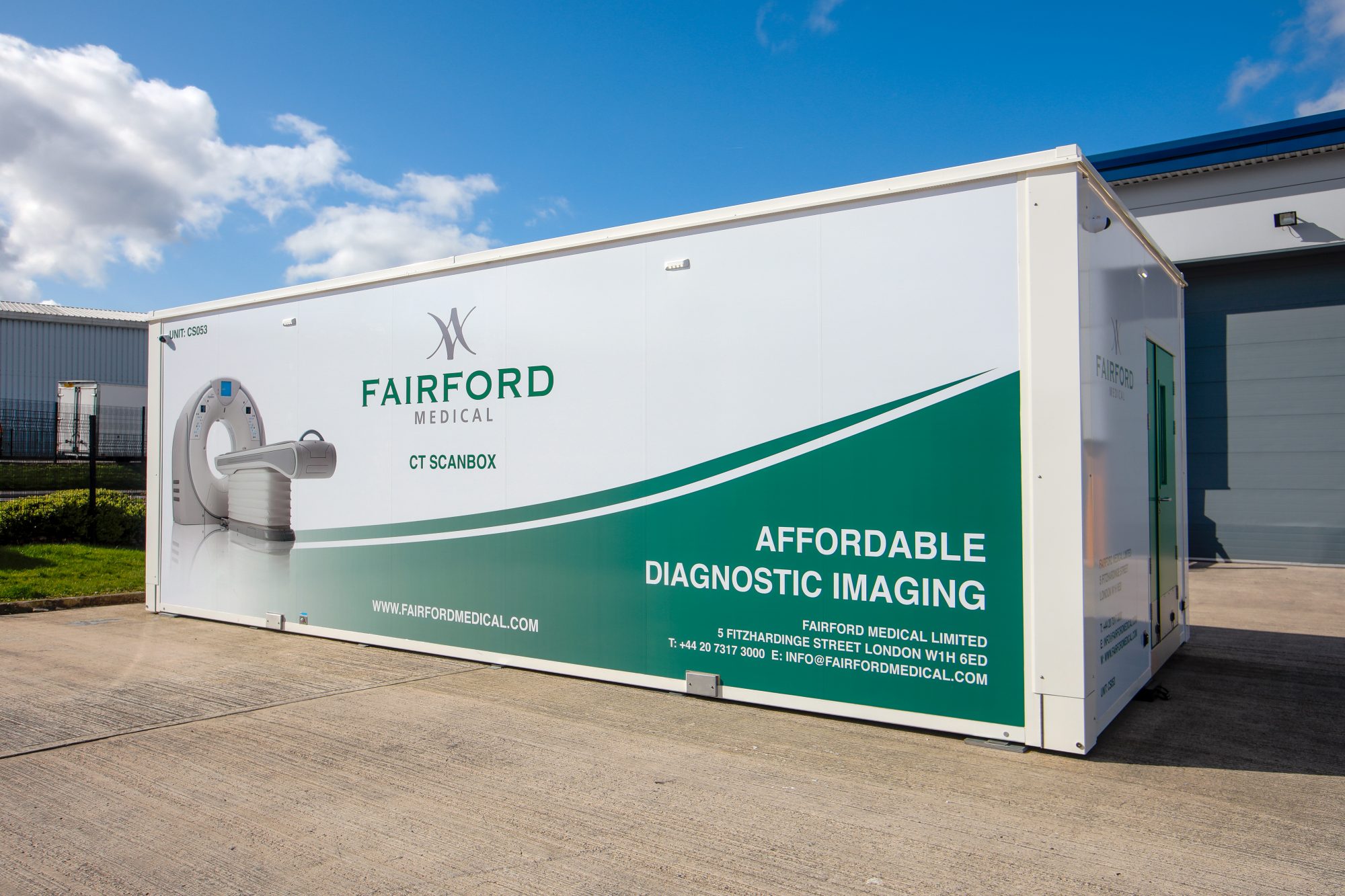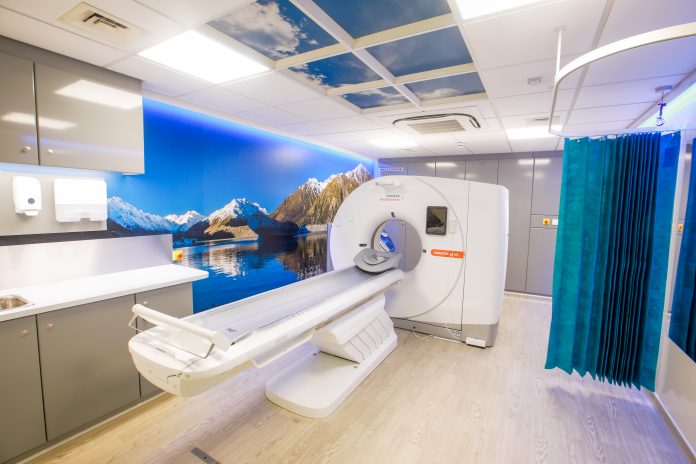NHS diagnostic services have been placed under immense pressure by the COVID-19 pandemic, now, Fairford Medical’s CT ScanBoxes can ease up resource burdens
As well as the devastating effects of the virus itself, the Covid-19 has caused significant disruption to NHS diagnostic services, and urgent services such as cancer and cardiac services.
Pre-pandemic, the United Kingdom already faced a severe lack of provision of imaging equipment and had one of the lowest number of MRI units and CT scanners per capita among EU countries.
When the Covid-19 pandemic was declared, these shortfalls only grew
Scanners were commissioned and rented out, and funds and staff were redirected to Covid-19 wards. Now that the NHS’ management of Covid-19 has improved, the NHS is grappling with a backlog of 5.45 million people currently waiting for hospital treatment – patients for whom imaging diagnostics will be a crucial part of their care. Faced by this shortage of equipment, staff and funding, NHS England announced plans in October 2020 to radically overhaul the way NHS diagnostic services are delivered for patients in a bid to improve outcomes for patients and deal with the huge backlog of scans for cancer and other serious conditions.
What is the NHS’ new approach to diagnostic services and what does it mean for equipment providers?
As part of its Long Term Plan, NHS England has recommended focusing on community diagnostic hubs – so-called ‘one-stop shops’ – away from healthcare facilities, so that patients can receive vital checks faster, closer to their homes and in a safe environment. NHS England said it wants to double the CT scanning capacity over the next five years to meet increasing demand.
To implement this strategy, the NHS will require significant investment in facilities and equipment which should be available on high streets, parking lots or retail parks. By separating diagnostic checks in A&E from tests taken ahead of routine procedures, the NHS hopes that every patient will be “able to get a scan on the day”.
With the NHS looking for a nimbler and more affordable model to deliver its services, including community-based can relocatable equipment and services help the NHS manage the upsurge in demand for diagnostic services?

Fairford Medical’s vision for the future of the NHS
Founded in 2016, Fairford Medical understood mobile and relocatable MRI and CT scanners would be an answer to the UK’s chronic shortage of imaging equipment. Today, the company focuses on providing individualised, mobile and relocatable scanners as suitable solutions to the sector’s multi-faceted problem.
Because building relocatables has traditionally been expensive, Fairford Medical created the CT ScanBox. Made available to the NHS at a reduced cost through a procurement framework for short, medium- or long-term use, savings are thus passed on to hospitals and clinics.
Instead of being craned into a hospital, compact CT Scanboxes can be driven into place and installed in less than an hour. Their hydraulic legs ensure they can be easily dropped into place, effectively saving precious time for healthcare practitioners and patients.
CT ScanBoxes are packed with state-of-the-art personalised features tailored to the needs of any service or facility. All maintenance is provided directly with the original equipment manufacturer of the machines.
Relocatable modular solutions allow for flexibility in healthcare
This is why the Liverpool University Hospitals NHS Foundation Trust ordered a CT ScanBox in 2020 after realising that its new CT Scanner from Siemens had no designated site.
The trust decided that a relocatable modular solution would allow the flexibility to put the CT into service faster than identifying and equipping a static setting – and that it could redeploy the system in future to another site if needed, with minimal impact and down-time.
The quality of the ScanBox meant there would be no compromise in staff comfort, efficiency and overall patient experience. After the relocatable was built at Fairford’s coachbuilders in the UK, an area at Aintree Hospital was identified as the ideal site.
Be it in a hospital car park or outside a clinic, the CT ScanBox supports a wide range of the latest CT scanners and additional support modules can include waiting areas, changing facilities and spaces for after-care and private meetings.
Because of their affordability, mobility and adaptability, ScanBoxes represent an opportunity to assist with Community diagnostic hub roll out, the recovery and renewal of the NHS, and improve outcomes for patients with serious conditions that have sadly been on waiting lists since Covid-19 hit in 2020.
*Please note: This is a commercial profile
© 2019. This work is licensed under CC-BY-NC-ND.











